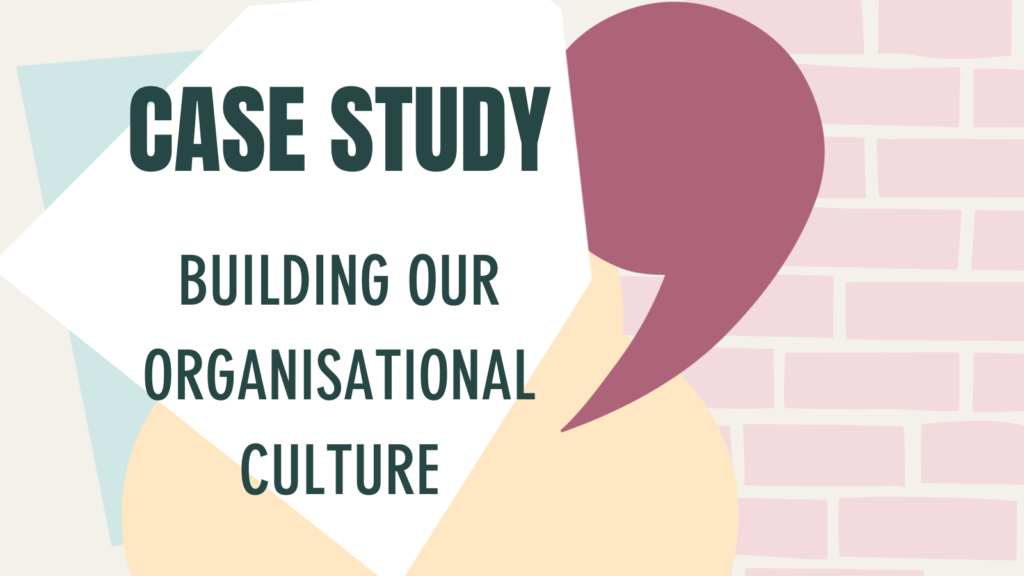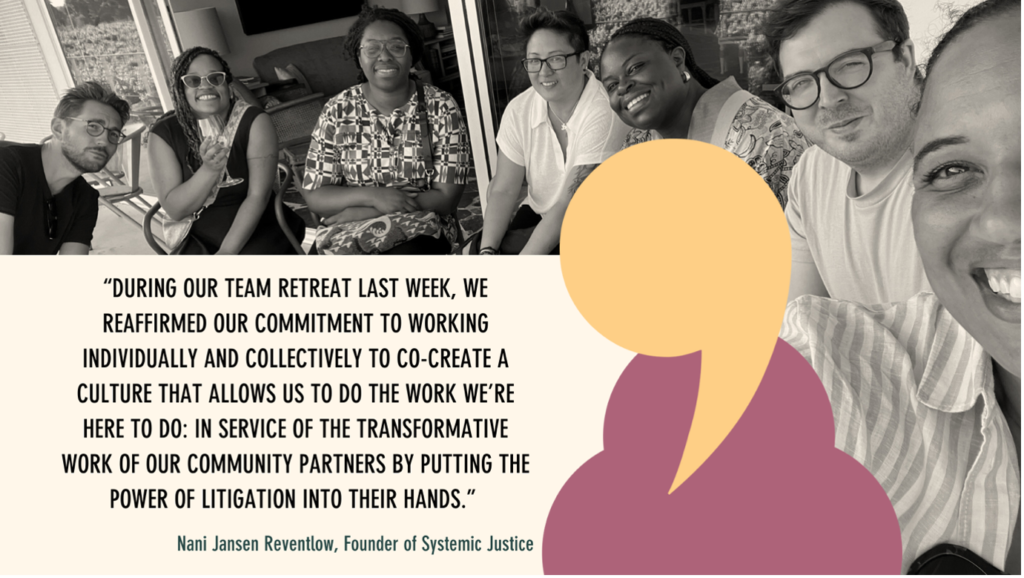“To do things differently, we also have to be a different kind of organisation. How can we build an organisation that lives its values of anti-oppression, justice, and intersectionality not only in how it approaches working with the communities it seeks to serve, but also in the way it works internally, in its systems, processes, and internal power-sharing? How do we care properly for our team and our partners in doing long-term, challenging, and often personal work? What should accountability look like? How can and should we fund this work? And what implications do these choices have for navigating both the expectations and requirements of external stakeholders?”
I wrote these words in early 2022, a few months after I started working full time on building Systemic Justice. The questions I shared then were a central part of our work from the very beginning – and they remain so to this day. Just like our mission was clear from the outset (to radically transform how the law works for communities that are fighting for racial, social, and economic justice), we understood that you cannot make change out in the world if you do not start from within your own organisation.

We have been sharing about our journey to build a different kind of organisation from the beginning. As I wrote in 2022: “Not because we’ll have ready-made answers to all these questions, or to reinvent the wheel, but rather to be open about our journey as it may be useful to others engaged in similar processes.” Over the past years, we have written about our organisational culture work and creating a guardianship framework for the organisation, our exploration of different organisational structures, how we are working to do recruitment differently, and how we are trying to navigate the challenges of resourcing anti-oppressive work in a landscape that is unsupportive of radical change. Today, we are sharing our first case study, documenting our organisational culture work so far.
Read the full case study here (PDF)
In the case study, which you can find in full here, you will be able to read about our journey from the beginning: how we worked to operationalise our organisational values, the organisational culture work we undertook, and the – sometimes hard – lessons we learned in the process. Some of these lessons include:
- Organisational culture isn’t just a side project or something to opt out of. We have learned that we need to keep being even more explicit about the fundamental role our culture plays and sharing what that means for people who are interested in working with us to achieve our mission.
- Explicit expectations do not limit freedom and choice; they do remove confusion and ambiguity. Making the basics explicit is key for a growing, international team so that expectations are clear, and people can operate effectively within them.
- Taking radical personal responsibility to individually and collectively work on ‘living the organisation’s values’ requires a lot of exploration, unlearning, and relearning of cultural, societal, and systemic patterns. This can be an uncomfortable experience before it is enriching and liberating, and it is not for everyone.
- Our leadership must model what we want to see in the organisation. This means we have to remain fully committed, as leaders, to do this work and show up for it, especially when it’s hard.
An overarching key learning has been that, no matter how vocal people are about their passion for doing things differently, and no matter how mainstream anti-oppression language is becoming, doing the actual work is much more challenging than most of us expect it to be. The power structures in which we operate are strong and pervasive: many of us have internalised them more deeply than we are aware. It requires hard work, intentionality, perseverance and deep, unwavering commitment to consistently push back against them.
We are aware that our case study is unusually honest and unlike what organisations will usually allow the outside world to see of their internal learning journeys. For us, this “radical transparency” is part of how we practise our belief that the way we show up in the world has to be matched by what we practice internally. Our organisation does not exist in isolation: we sit at the intersection of many ecosystems, which each consist of organisations that are exploring similar questions as we are. We hope that sharing our learnings will help support some of those explorations. As I wrote late last year, there is power in numbers, and the more of us who are challenging the current NGO mould, the more chance we have of reshaping it.

While the journey has been challenging and at times harmful to me personally as a Black woman leader, we remain as committed as ever to building our organisation differently. During our team retreat at the beginning of this month, we reaffirmed our commitment to working individually and collectively to co-create a culture that allows us to do the work we’re here to do: in service of the transformative work of our community partners by putting the power of litigation into their hands.
